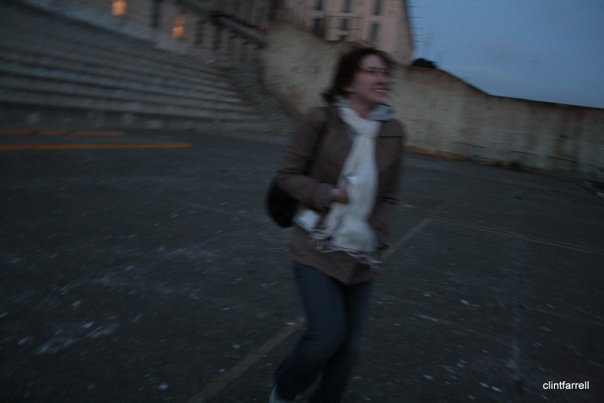Homework question: "Is this understanding used in professional writing? How does this serve narrative functions such as scene-setting and character development?"
In all honesty, I don't think I can really answer this question. My knowledge of digital storytelling is extremely limited. I read "Elements of Digital Storytelling," but the concept is still not very clear to me. We touched on the subject only briefly in class, and I'm not quite sure exactly what digital storytelling entails. But I'll try to get through this the best that I can, though my answer may not make any sense at all. You've been duly warned.
I've just checked out this really cool website that was mentioned on the syllabus. It tells the stories of things related to apples (oddly enough) in wild, visually intriguing manner, with a blend of graphics, sounds, narrative, and other effects. I'm assuming that these effects are the "concepts" that I should have an "understanding" of, and I'll answer the questions as such.
In order to grab and maintain a reader's attention, a piece must have some special quality that makes it desirable to read. A professional writer uses various devices (language, style, format, etc.) to make the piece come alive, and in that way, yes- the concepts of digital storytelling are used in professional writing.
To answer the second question, the elements of digital storytelling- the visuals, the sounds, the text, and whatever else I may be missing- serve narrative functions because these elements are the vehicle that's telling the story. They are the narrative functions.
Another homework question: "How does action function as part of the narrative? Can it be likened to the function of transitions in a linear print narrative?"
Action is what keeps a narrative moving. I can't think of any story in which absolutely nothing happens. If one actually does exist, I bet it's really boring, and also really short. In digital storytelling, the action can be shown through various graphic tools and images, which assists in getting the story's message across to the reader. I suppose it could be likened to the function of transitions in a linear print narrative in that after an action has taken place, the story usually moves on to a new scene, and a transition moves a story onto a new scene as well.
(Note: I think all my answers to these questions are pretty lame, but I'm trying my hardest.)

